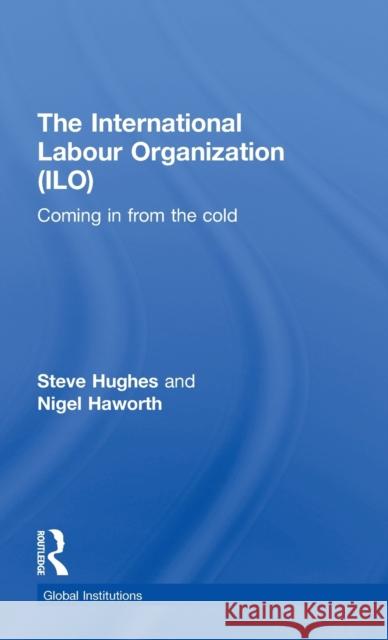International Labour Organization (Ilo): Coming in from the Cold » książka
International Labour Organization (Ilo): Coming in from the Cold
ISBN-13: 9780415353823 / Angielski / Twarda / 2010 / 144 str.
International Labour Organization (Ilo): Coming in from the Cold
ISBN-13: 9780415353823 / Angielski / Twarda / 2010 / 144 str.
(netto: 723,00 VAT: 5%)
Najniższa cena z 30 dni: 654,86
ok. 22 dni roboczych.
Darmowa dostawa!
The International Labour Organization (ILO) is broadening its agenda and carving out a role as a key player in global economic policy-making, and this volume provides a succinct and comprehensive guide to this important organization. By charting the history and development of the ILO and examining its key functions and structure the authors offer a clear and detailed account of its work, and provide an important discussion of the current criticisms and debates that surround the organization. The work moves on to discuss the position that the ILO takes in our understanding of global governance and seeks to evaluate the impact of emerging issues such as the global economic crisis, and critically examines the future direction of the organization. This fresh and accessible account of the International Labour Organization provides an excellent understanding of its purpose and structure and will be of interest to all students of international politics, international organizations and international political economy.
The World Trade Organization's (WTO) consistent rejection of proposals for the inclusion of a Social Clause into its existing rules and regulations has prompted the International Labour Organization (ILO) to examine alternative ways in which global consensus on the regulation of labour standards can be developed. In taking up this broader agenda, the ILO is carving out a role as a key player in the heartland of global economic policy-making.
But, what position does the ILO take in our understanding of global governance? Should we be threatened with concerns over multilateralism’s struggle to address the social costs of globalization? This book aims to answer these questions and many more. This fresh and accessible account of the International Labour Organization provides the reader with an excellent understanding of its purpose and structure.











